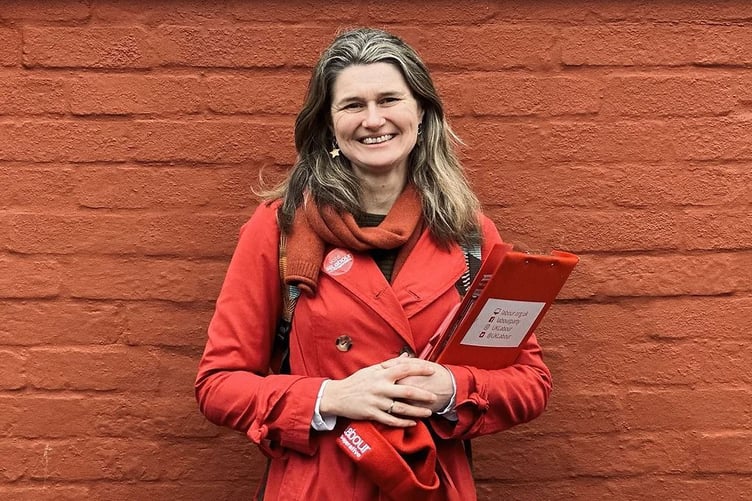THE full extent of Cornwall’s housing crisis and the “heartache” it is causing for thousands of families was laid bare in Parliament on Wednesday, October 9.
MPs debated Labour’s rental reforms as the Renters’ Rights Bill passed its second reading with a huge majority and moved a step closer to law. The legislation is set to scrap Section 21 or no-fault evictions along with a range of other changes to give renters more security.
Jayne Kirkham, who was voted in as the Labour MP for Truro and Falmouth in July’s General Election, told fellow MPs just how bad the housing situation is in Cornwall, the area with the largest supply of short-term lets outside London.
She said: “Recent statistics show that 50 per cent of the private rented sector in Cornwall doesn’t meet the decent home standard. That’s way above the average of 21 per cent,” Ms Kirkham added that a quarter of Cornwall’s children and young people were living in private rented accommodation, including a third of under-fives. “That’s been evidenced by the noticeable uptick in Section 21 evictions in recent years, affecting families with young children and we now have over 800 households in Cornwall in emergency or temporary accommodation, many of those young families.
“They’ve struggled to find somewhere else because of the cost and the children or the cat. Because of our geographical spread many of them have ended up in holiday parks, caravan sites or hotels up to hour and a half drive away from home. With poor rural transport links this can often lead to families completely cut off from jobs, schools and support networks.”
She told the House of Commons that in September 2020, Cornwall Council’s economic growth committee published an inquiry into the private rental sector in Cornwall and recommended a number of measures to extend licensing powers. It also recommended data gathering for landlords and tenants, DBS checks, longer terms and limiting annual rent increases.
“However, Covid happened, further local government cuts affected officers’ capacity and the administration changed to a Conservative one who were wary about upsetting landlords after Covid, so none of the recommendations were enacted,” added the MP. “Regardless of their caution, the private rented sector has still been decimated in Cornwall, with many landlords selling up or flipping lucrative short-term holiday lets. The prices have skyrocketed and many people are struggling to find homes. That’s why I am so pleased and relieved that this Bill has been prioritised with this Government and will bring in so many of the measures that were in that original Cornish report.
“Many people are shut out of the market if they have children, pets or are on benefits and changes to stop that happening will prevent the most vulnerable in my constituency remaining unhoused and the heartache as people decide to give up their treasured pets. These changes will really support the security of privately renting families in Truro, Falmouth and across Cornwall.”
She told fellow MPs that many people in Cornwall have been evicted from their rented homes with two months notice so they can be used as short-term or holiday lets.
“There are 24,300 holiday let properties in Cornwall, which is up 30 per cent on 2019. Statistics from the council tax base tell us there are also approximately over 13,000 second homes registered in Cornwall — that’s nearly five per cent of the total housing stock; five times higher than the average across England.
“There are also 27,000 families on the waiting list for social housing but we only have 10,000 council houses and 22,000 housing association homes in Cornwall. I’m therefore pleased that the minister is considering a toolbox of measures that could be made available to local authorities to discourage the further depletion of private rented sector and full-time residential housing in Cornwall, such as the higher council tax that is coming in, licensing and registration, planning restrictions and closing the business rates council tax loophole.”
Opening the debate, deputy prime minister Angela Rayner said: “Millions of people live in fear of Section 21 no-fault evictions that could uproot them from their homes and their communities, and are forced to live in homes that are riddled with damp and mould, too scared to complain in case they end up evicted and homeless, knowing another potential tenant will be desperate enough to move in.
“This is why, as housing secretary, I have put decency at the heart of my plans for housing, and taken the steps to ensure that all homes are warm and safe. Nowhere is that more needed than in the private rented sector, a sector that plays an undeniably critical role in our housing system.”
Shadow housing secretary and Tory party leader hopeful Kemi Badenoch has described the Bill as a “powerful disincentive” for would-be landlords.





Comments
This article has no comments yet. Be the first to leave a comment.